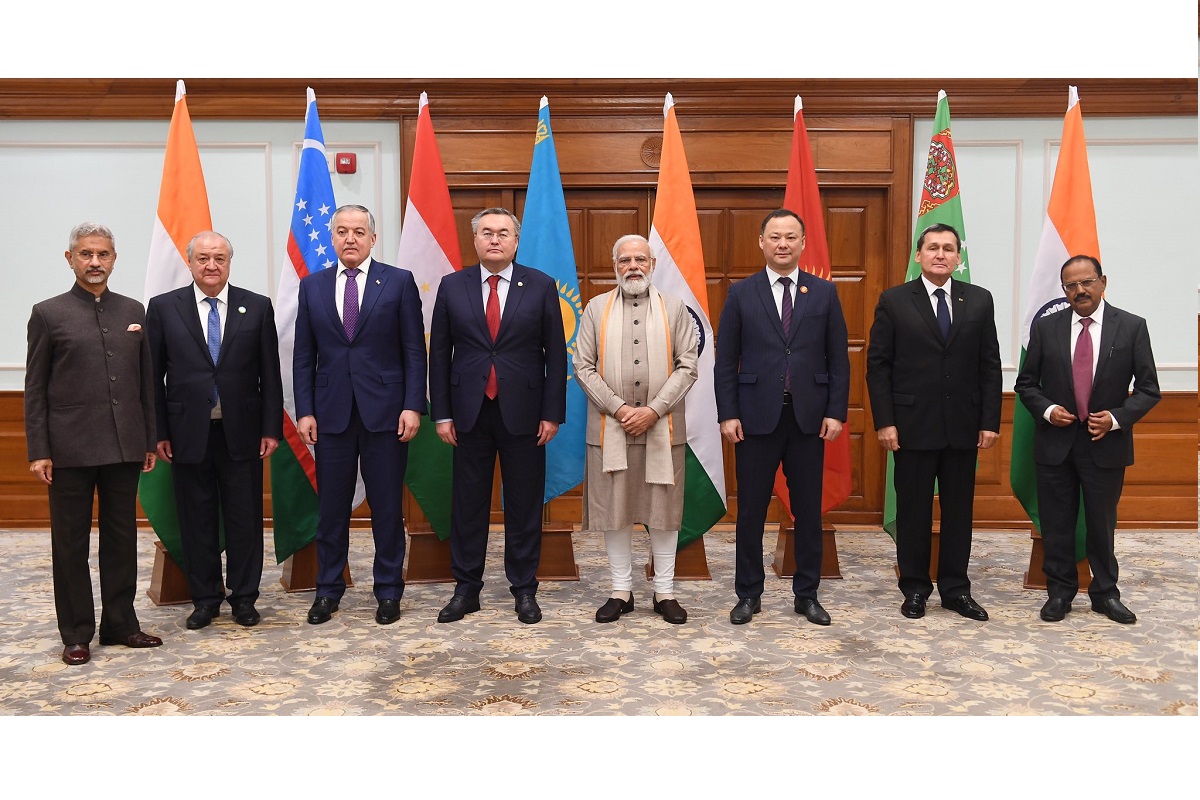Adnan Sami joins Padma Awards committee, thanks PM Modi
Adnan Sami shared his gratitude for being part of the Padma Awards Committee. He called it an honor to celebrate India’s inspiring achievers.
Modi was talking to the foreign ministers of Central Asia nations–Kazakhstan, Kyrgyz Republic, Tajikistan, Turkmenistan, and Uzbekistan– when they called on here.

(Image Source: Twitter/@narendramodi)
Prime Minister Narendra Modi today underlined the importance of maintaining cultural and people-to-people contacts between India and Central Asia, given the popularity of Indian films, music, yoga, etc in the region.
He also underscored the potential of enhanced economic cooperation between India and Central Asia and the role of connectivity in that regard.
Advertisement
Modi was talking to the foreign ministers of Central Asia nations–Kazakhstan, Kyrgyz Republic, Tajikistan, Turkmenistan, and Uzbekistan– when they called on here.
Advertisement
The foreign ministers were in India for participating in the 3rd India-Central Asia Dialogue which concluded last evening.
The PM emphasised the importance that India attaches to its long-standing relations with Central Asian countries, which are part of its ‘Extended Neighbourhood’. He conveyed his felicitations to the ministers on the 30th anniversary of their independence this year. He recalled his memorable visits to all Central Asian countries in 2015 and subsequently to Kazakhstan, Uzbekistan, and the Kyrgyz Republic.
The Central Asian foreign ministers conveyed the greetings of their Presidents to PM Modi and emphasised the readiness of their leadership to further strengthen relations with India. They briefed him on the deliberations of the India-Central Asia Dialogue held under the chairmanship of External Affairs Minister S Jaishankar. It focused on trade and connectivity, development partnership, and regional developments, including the situation in Afghanistan.
At their dialogue yesterday, India and the five Central Asian countries yesterday reiterated their strong support for a peaceful, secure, and stable Afghanistan while emphasising the respect for sovereignty, unity and territorial integrity, and non-interference in its internal affairs. They reaffirmed the importance of UNSC Resolution 2593 (2021) which unequivocally demands that Afghan territory should not be used for sheltering, training, planning, or financing terrorist acts, and called for concerted action against all terrorist groups. They also agreed to continue close consultations on the situation in Afghanistan.
Advertisement